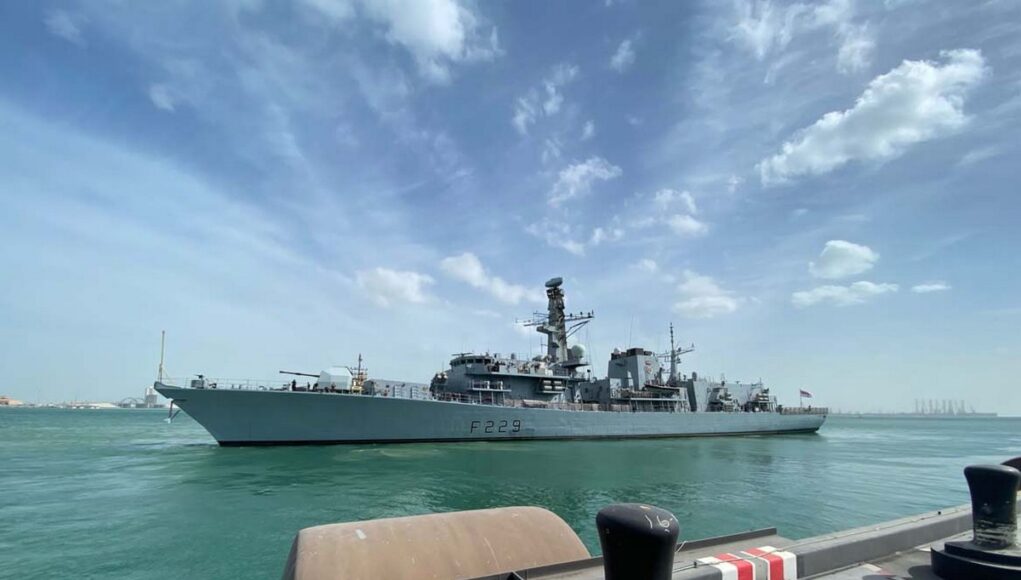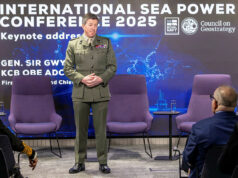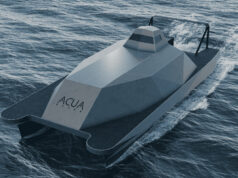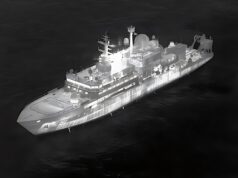Recent parliamentary questions have shed light on the United Kingdom’s ongoing commitment to maintaining a Royal Navy presence in the Middle East.
Responses from Luke Pollard, Parliamentary Under-Secretary for Defence, highlight that the Ministry of Defence (MoD) is actively evaluating its naval force posture in the region.
In response to a query from Andrew Rosindell, Conservative MP for Romford, Pollard stated:
“The Ministry of Defence keeps its force posture in the Middle East under continual review to safeguard the UK’s national security interests and operational requirements. We remain committed to working with our partners across the region.”
This assurance underscores the UK’s dedication to regional stability and protecting maritime routes critical to global trade and energy supplies. However, specifics about potential enhancements or shifts in deployments await the upcoming Strategic Defence Review, set for publication later this year.
This review will determine the strategic priorities of the Royal Navy and other armed forces, shaping the global distribution of UK assets.
Funding for Bahrain’s Naval Support Facility
Rosindell also queried potential funding increases for the UK Maritime Component Command at the Naval Support Facility in Bahrain. In response, Pollard indicated that:
“Future funding decisions are subject to the ongoing Spending Review, and the outcome of the Strategic Defence Review.”
The Naval Support Facility in Bahrain plays a crucial role in sustaining UK operations in the region, serving as a hub for logistics, maintenance, and coordination of naval forces. Any funding adjustments could impact the facility’s capability to support ongoing operations, including counter-piracy, anti-smuggling, and ensuring the free flow of shipping through critical chokepoints like the Strait of Hormuz.














It’s very nice for the Under-Secretary for Defence to say that, but it’s clear UK naval forces in the Middle East are in rapid decline even if “we remain committed”.
This article – https://www.navylookout.com/the-royal-navys-fading-presence-in-the-middle-east/ summarizes a trend from a regionally based force of a frigate, 3-4 MCMV and a Bay class down to probably just 1 MCMV by the end of this year. It notes that Lancaster will likely come home this year to retire, and with a frigate fleet down to just 8 hulls it speculates there will be no replacement until a Type 31 comes on stream.
I am just waiting on them to say that a single mine hunter/sweeper is now the flagship vessel in The Gulf!
#onlyamatteroftime
Or perhaps an inflatable boat as flagship.
Unfortunately that will almost certainly be true by the end of the year, indeed there is strong argument that keeping one Hunt in Bahrain is an inefficient waste of money – may as well bring it back to the Clyde and then save £12 million a year (2016 cost, probably near £20m today) by mothballing the HMS Juffair facility or renting it to another navy. Also very hard to see how the 1* post (Commodore) of UK Maritime Component Commander can be retained after Lancaster departs Bahrain for the UK in “late 2025” to decommission. The local American Vice-Admiral (COMFIFTHFLT) and French Rear-Admiral (ALINDIEN) won’t take him seriously! We’ll probably be back to the the pre-2014 arrangement of a Commander (i.e. a three striper) based largely in Dubai rather than Bahrain, to be near the UKMTO, with the title of Royal Navy Liaison Officer, Dubai.
It is delusional, the UK is broke and has had next to no economic growth for a long time. It needs to pivot to a North Atlantic strategy, specifically the North & Norwegian Seas. Trying to operate in multi-theaters is well beyond it today and as we know, even the USA is pulling back from attempting to police the world. It can still make a good contribution to NATO’s northern flank, allowing the release of US assets that can then go gallivanting around the globe (for now), much to the chargrin of many of its tax payers.
The tilt to the Pacific is delusional. A presence in the Gulf isn’t really. But it won’t be very effective until the surface fleet gets back to 19, sometime in the early 2030s, by which time, hopefully, our mine hunting capability will also have been restored.
Concentrating on the North Atlantic should be the priority, of course.
I
Except numbers and presence really does matter and we’re now down to a frigate (soon to be retired) and a couple of mine-hunters, compared to the 10 or more vessels we had in the area for many years until relatively recently.
A handful of liaison staff at a shore based facility isn’t exactly the same!
I really wish Labour would bite the bullet and tell Britain, we are royally, foxed and get it over and done with; why the pretence – it is just a waste of money and serves no purpose.
Just wind our necks in and get on with what we can do and shelve ambitions to be a globally deployable military and save money and concentrate on the basics.
So, if we start buying US LPG from Trump instead of Qatari gas, does it matter if we pull out of the Gulf?